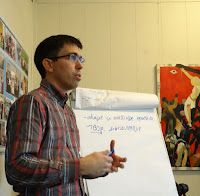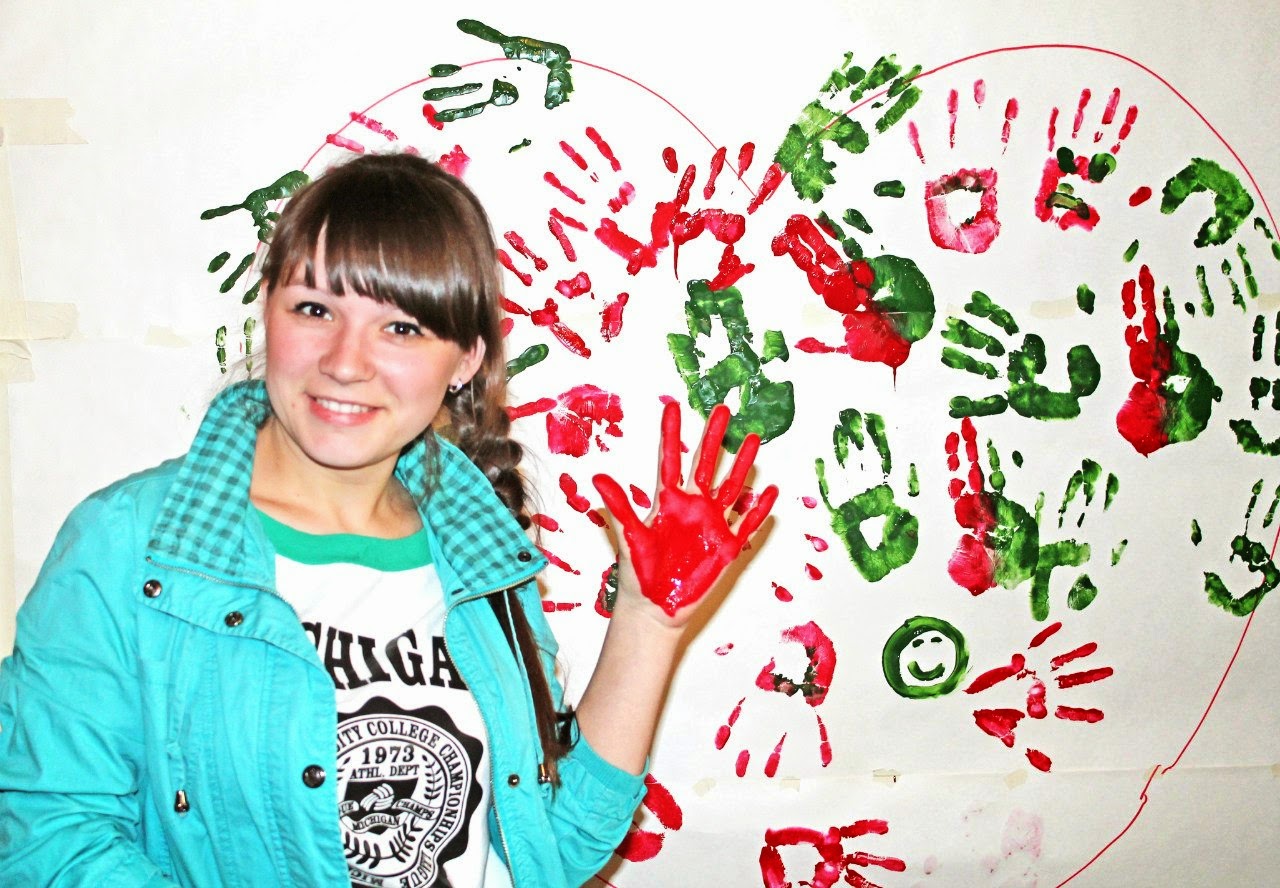From time to time the church
here asks me to write for their magazine - “Der Bote.” This year
I was given the task of writing a sermon for their Christmas issue.
My space was very limited, so I can't help but feel that the text is
underdeveloped. That said, I thought that by sharing an English
translation of the text with you, you might gain a bit of insight
into my view of the life and piety of the Russian Lutheran church. This is not
the sermon I would have given in
the U.S., but I hope that it succeeds both in meeting the people
“where they are” and at the same time calling them ahead to where
they might, with the Spirit's guidance, go. Below, then, is the
sermon I wrote for them with only some slight expansion of the first
paragraph in order to help you understand the context. The sermon is
titled “The Day After the Holiday.”
The
winter holidays in Russia are long and full of repeated celebrations
– because the Eastern Orthodox Church maintains the Julian
calendar, they celebrate Christmas when our Gregorian calendar tells
us that it is January 7. The bigger celebration here, New Year's Eve,
is also celebrated twice (the second time with a degree of
self-depreciating humor), on December 31/January 1 and “Old New
Year” 13 days later. All the while the country begins to go into
full holiday mode in the last days of December and falls more or less
into a stupor until the middle of January... Doesn't it seem to you
that people tend to find that it is hard to “wake up” after that?
It is, after all, easy to get used to doing nothing.
Unfortunately this is the
case not only during the winter holidays. All year round we tend to
do just enough to get by. We go with the flow; we think and act
according to old habits. This helps us feel comfortable; being
tethered to what is familiar protects us from unpleasant surprises.
On the other hand, though, we stop waiting for pleasant surprises,
too... Maybe that's because we know, in the end, that we really don't
deserve them.
Despite this quality of us
humans, God continues to surprise us. This is what we celebrate today
– that God decided to intervene in our situation to save us from
ourselves and from separation from Him. It is this separation that is
reflected in our laziness, our fears and other vice. From our end
we've done nothing to suggest to God that we deserve to be saved; He
acts entirely out of His mercy. That is why it is written “grace
appeared.” This phrase appears in our readings both for Christmas
Eve (Tit. 2-11-14) and for Christmas day (Tit 3.4-7). Grace appearing
is not the logical result of our actions. It has nothing to do with
human standards of justice. The author of this text pays little
attention to explaining why grace appears, though the answer
to this question underlies everything in the text. In the 2nd
chapter we are dealing with one very long sentence that, if you cut
out the dependent phrases reads: “grace appeared so that we would
live, awaiting...” In a similar way in the 3rd chapter
we read: “when the goodness and loving kindness of God our Savior
appeared, he saved us, not because of any works of righteousness that
we had done, but according to his mercy..., so that,
having been justified by his grace, we might become heirs according
to the hope of eternal life.” (.4-.5a,.7)
In
these dense phrases we see that Titus was written not only for the
holiday, a joyful day of praise, but also for the next day, when life
returns to its usual patterns. This letter was written, it seems, not
for the first two weeks of January, but for the 350 days that follow.
After all our Christian life is not only about what God has already
done, but also about God's continuing work in the world and in us.
Grace was revealed, yes, that's true, but that was not God's final
goal. “Grace appeared so that...”
God's
grace, which we celebrate in a special way today, defines our present
and our future. Nothing else can transform our world so powerfully.
It is grace which frees us from our laziness, our inertness and our
fear of the unknown. It is grace, Luther says in one of his sermons
on this text, that makes us a “channel through which flows a
constant stream of God's blessings to other people.” That is
another reason for our great joy today! Just like Titus, we live in
the day after the holiday. Praise God that there is the Christmas
news which shakes us up, enlivens us, inspires us and directs us to
concrete actions for the sake of those in need. And who are they?
Aren't they the refugees in your town from eastern Ukraine or Syria?
Aren't they those who do not yet know about God's love and need you
to witness to them about it? Aren't they those who during these
holidays are alone or in poor health? You know better than I do who
these people are. And you know why you want to help them – because
grace has been revealed. Alleluia!














































.JPG)
.JPG)


.JPG)

